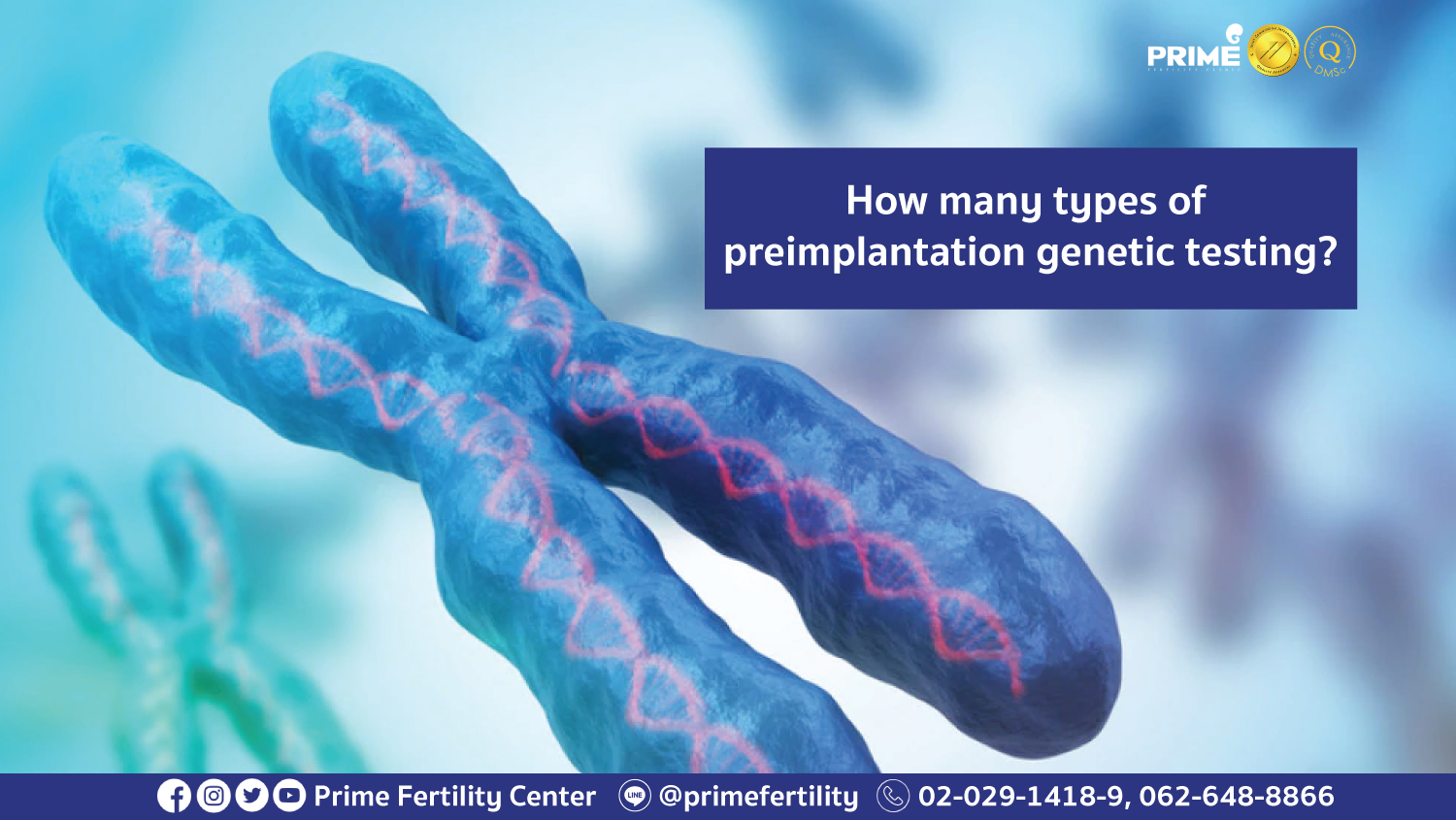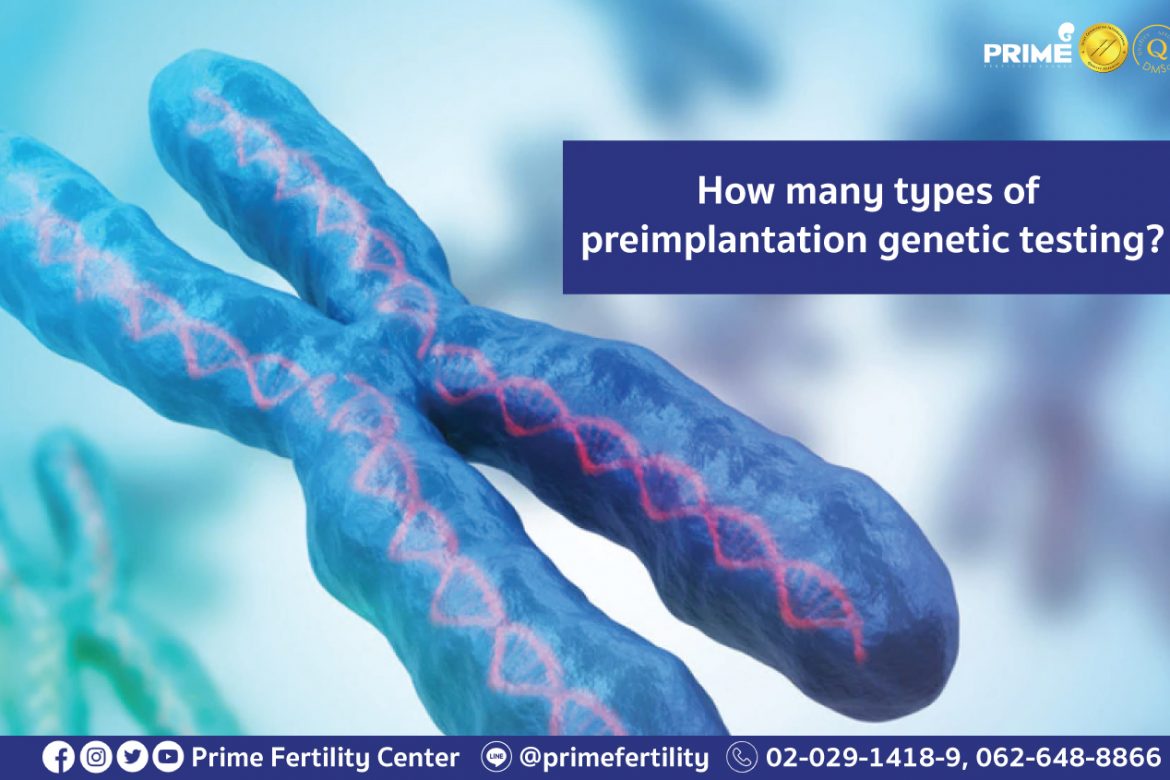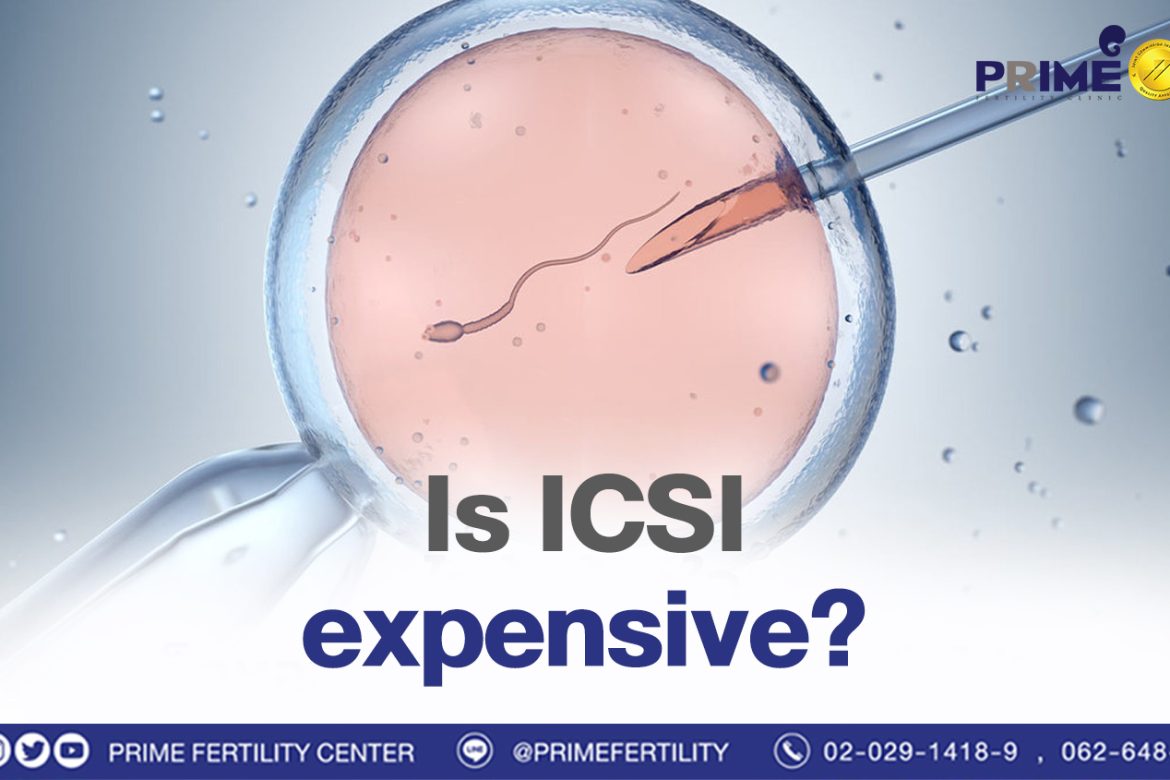Preimplantation genetic testing (PGT) is a technique used to screen and diagnose genetic abnormalities in embryos in order to detect some specific diseases before transfer to the uterine cavity.

It is important to evaluate embryos before implantation as it can reduce the risk of abnormalities in the fetuses whose parents are having genetic diseases.
Therefore, PGT helps to increase the success of getting pregnant and lower the abortion rate due to the embryo’s genetic disorders. PGT is consisting of 3 approaches as following:
PGT-A (Preimplantation Genetic Testing for Aneuploidy)
The test is to evaluate the abnormalities of number and structure of the embryos in order to screen the complete chromosomes, deletion or addition. Since an abnormal chromosome number is considered a primary cause of miscarriage during the first trimester of pregnancy.
PGT-M (Preimplantation Genetic Testing for Monogenic Disorder)
The test is for screening the single gene disorders prior to embryo implantation. In order to prevent genetic diseases caused by the single gene disorders which can be passed to offspring e.g., anemia, thalassemia, muscular dystrophy as well as complex disorders.
PGT-SR (Preimplantation Genetic Testing for Structural Rearrangement)
An embryo genetic testing that can determine incorrect chromosomal arrangement. Some chromosomal structural rearrangements may cause various disorders such as down syndrome or infertility problem. Therefore, PGT-SR can reduce the risk of abortion from chromosomal disorder and increase the chance of conceiving a baby.
Reference: Prime Fertility Center Co., Ltd.



